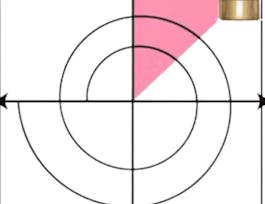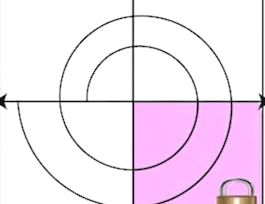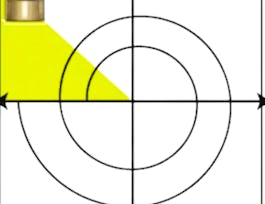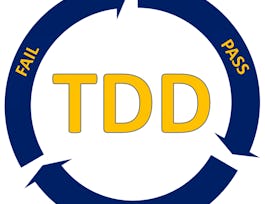In Elicitation: Artifact and Stakeholder Driven Analysis, you will learn to use both recorded and presently unrecorded knowledge in your elicitation techniques. As you get started in finding out about the new product, you must first learn about the product that was (if there was one) and then learn about the system to be. Oftentimes, you'll find yourself in an environment you know nothing about! This course will help you find ways to learn about the domain, the system that was, and the system to be. Please review: "Who this class is for to determine if you are ready to take this graduate level course".


Requirements Elicitation: Artifact and Stakeholder Analysis
This course is part of Requirements Engineering: Secure Software Specifications Specialization
Taught in English
Some content may not be translated

Instructor: Kristen Walcott-Justice
7,811 already enrolled
Included with 
Course
(112 reviews)
Details to know

Add to your LinkedIn profile
14 quizzes
Course
(112 reviews)
See how employees at top companies are mastering in-demand skills

Build your subject-matter expertise
- Learn new concepts from industry experts
- Gain a foundational understanding of a subject or tool
- Develop job-relevant skills with hands-on projects
- Earn a shareable career certificate


Earn a career certificate
Add this credential to your LinkedIn profile, resume, or CV
Share it on social media and in your performance review

There are 4 modules in this course
One step of gathering domain knowledge and knowledge of the system that was and the system to be is through artifact-driven elicitation. Here we will discuss what artifact-driven elicitation entails, how to go about learning background from the stakeholders, and methods to obtain and deal with the data.
What's included
4 videos5 readings4 quizzes1 discussion prompt
As you talk with customers early on, developing storyboards and scenarios help. They are easily communicable to both the customer and later to developers and work in all software development lifecycles. Mockups and prototypes can also be used- CAREFULLY. Here we explain these concepts along with their large benefits and dangers.
What's included
4 videos4 readings3 quizzes1 peer review1 discussion prompt
In understanding the system to be and the system that was, existing knowledge of the domain and current scenarios needed are helpful. These can be related back to models. This lesson discusses knowledge that can be obtained, from what resources, and how that can be mapped to existing models for help in further elicitation.
What's included
2 videos3 readings3 quizzes1 discussion prompt
Knowledge of the system-as-is and the system-to-be can be obtained through interviews. While the concept of conducting an interview seems easy overall, an efficient and effective interview is challenging to conduct. Here we'll talk about guides to meeting effectiveness and guidelines for conducting a useful interview, specifically for determining what the stakeholder has and needs.
What's included
6 videos5 readings4 quizzes1 discussion prompt
Instructor

Offered by
Recommended if you're interested in Software Development

University of Colorado System

University of Colorado System

University of Colorado System
Why people choose Coursera for their career




Learner reviews
Showing 3 of 112
112 reviews
- 5 stars
70.53%
- 4 stars
17.85%
- 3 stars
5.35%
- 2 stars
3.57%
- 1 star
2.67%
New to Software Development? Start here.

Open new doors with Coursera Plus
Unlimited access to 7,000+ world-class courses, hands-on projects, and job-ready certificate programs - all included in your subscription
Advance your career with an online degree
Earn a degree from world-class universities - 100% online
Join over 3,400 global companies that choose Coursera for Business
Upskill your employees to excel in the digital economy
Frequently asked questions
Access to lectures and assignments depends on your type of enrollment. If you take a course in audit mode, you will be able to see most course materials for free. To access graded assignments and to earn a Certificate, you will need to purchase the Certificate experience, during or after your audit. If you don't see the audit option:
The course may not offer an audit option. You can try a Free Trial instead, or apply for Financial Aid.
The course may offer 'Full Course, No Certificate' instead. This option lets you see all course materials, submit required assessments, and get a final grade. This also means that you will not be able to purchase a Certificate experience.
When you enroll in the course, you get access to all of the courses in the Specialization, and you earn a certificate when you complete the work. Your electronic Certificate will be added to your Accomplishments page - from there, you can print your Certificate or add it to your LinkedIn profile. If you only want to read and view the course content, you can audit the course for free.
If you subscribed, you get a 7-day free trial during which you can cancel at no penalty. After that, we don’t give refunds, but you can cancel your subscription at any time. See our full refund policy.


